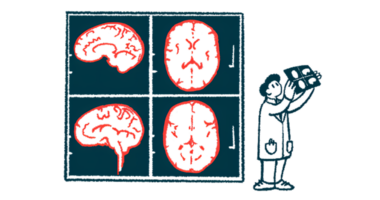FDA clears AI tool for detecting disease activity on MRI scans
Pixyl.Neuro software reported to analyze findings in fewer than five minutes

Pixyl.Neuro, a next-generation software that uses artificial intelligence (AI) in analyzing MRI scans to help detect and monitor multiple sclerosis (MS) disease activity, has received 510(k) clearance from the U.S. Food and Drug Administration (FDA) for clinical use.
510(k) clearance is required for medical devices used in the U.S., and essentially means that the software meets the FDA’s safety guidelines for such use.
“The recent FDA approval of Pixyl’s software is a very positive step toward improved diagnosis, management and longitudinal follow up of neurodegenerative and neuroinflammatory disorders,” Lotfi Hacein-Bey, MD, chief of the division of neuroradiology at the University of California Davis, said in a press release from Pixyl, the company marketing the software.
MRI brain scans help to detect new MS lesions or changes in existing ones
“We believe Pixyl will be a game changer in neurological practice … and I look forward to significant benefits to our patients, scientific collaborations and our imaging workflow,” Hacein-Bey said.
Added Senan Doyle, CEO of Pixyl: “It is incredibly rewarding to receive feedback from Pixyl.Neuro users who attest to this valuable support. We are delighted to work with US radiologists and imaging centers to reinforce radiology workflows and patient care.”
MS is caused by inflammation that damages healthy nerve tissue in the brain and spinal cord. MS-related damage is visible on MRI brain scans as lesions, where nerve tissue has become damaged and scarred. These lesions are how MS gets its name, as the disease causes “multiple” areas of “sclerosis” or scarred damage.
MRI scans also can be used to measure brain atrophy or shrinkage, and they have become one of the major tools clinicians use to help diagnose MS and track disease activity.
To date, most MRI-based assessments are done by trained professionals, a process that is both time consuming and risks human error. Pixyl.Neuro aims to use AI to help detect disease activity in scans. The company reports that its software relies on minimal MRI protocols and it generates results in a matter of minutes.
“Our proprietary AI algorithms, combined with our lightning-fast computing infrastructure, enable analysis to be completed in less than five minutes,” the company reports on a webpage. “This provides doctors with rapid diagnostic support, allowing for more efficient and effective treatment plans.”
Pixyl.Neuro currently is being used in more than a dozen countries across North America, Europe, and Africa, according to Pixyl. The therapy previously was granted CE-mark class IIa certification in the European Union which, similar to 501(k) clearance in the U.S., is a regulatory recognition that the device has met safety requirements.







